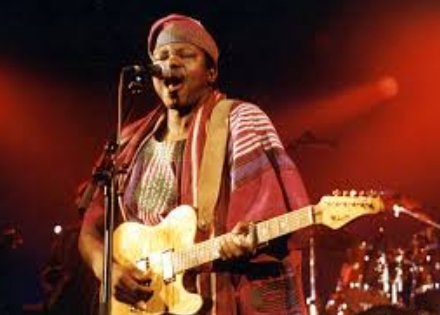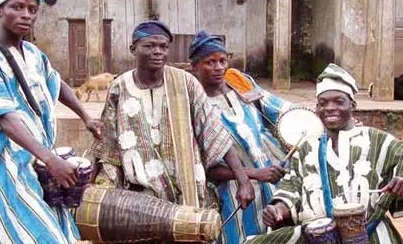
support@yorubalibrary.com
+2348073529208, 07038599574

Yoruba music is a rich and diverse aspect of Yoruba culture, reflecting the history, beliefs, and artistic expression of the Yoruba people. This article explores the evolution of Yoruba music, comparing traditional forms with modern adaptations and highlighting their unique characteristics.
Traditional Yoruba Music
Traditional Yoruba music has deep roots in the daily life and spiritual practices of the Yoruba people. It encompasses a wide range of musical forms and instruments, each with its distinct role and significance.
Musical Instruments
Traditional Yoruba music is characterized by its use of indigenous instruments, each producing unique sounds that contribute to the overall musical experience.
• Talking Drum (Dundun): Known for its ability to mimic the tones of human speech, the talking drum is central to Yoruba music. It is used in various ceremonies, from religious rituals to social gatherings.
• Bata Drums: These double-headed drums are often played in sets and are integral to religious worship, especially in the worship of Sango, the god of thunder.
• Shekere: A percussion instrument made from a dried gourd covered with beads, the shekere adds a rhythmic texture to traditional music.
Vocal Styles and Chants
Vocal music in traditional Yoruba culture includes a variety of styles, such as praise singing (oríkì), spiritual chants, and folk songs. These vocal forms are often accompanied by drumming and dancing, creating a dynamic and participatory musical experience.
Religious and Social Functions
Traditional Yoruba music serves various functions, from religious ceremonies to social celebrations. It is an essential part of festivals, weddings, funerals, and other communal events, reinforcing cultural values and social bonds.
Modern Yoruba Music
Modern Yoruba music has evolved significantly, incorporating elements of Western music and contemporary styles while retaining its traditional roots. This fusion has given rise to several popular music genres.
Afrobeat
One of the most influential modern Yoruba music genres is Afrobeat, pioneered by the legendary Fela Kuti. Afrobeat combines traditional Yoruba rhythms with jazz, funk, and highlife, creating a distinctive sound that has gained international acclaim.
Juju Music
Juju music, popularized by artists like King Sunny Adé and Ebenezer Obey, blends traditional Yoruba music with electric guitars and modern percussion. It is known for its intricate rhythms and melodic lines, often accompanied by philosophical lyrics.
Fuji Music
Fuji music emerged from traditional Yoruba percussion styles and has become a popular genre in Nigeria. Originating in the 1960s, fuji music blends Islamic religious music with traditional Yoruba drumming and contemporary influences.
Comparing Traditional and Modern Yoruba Music
While traditional and modern Yoruba music differ in style and instrumentation, they share common themes and cultural significance.
Continuity and Innovation
Traditional Yoruba music focuses on preserving cultural heritage and religious practices, using indigenous instruments and vocal styles. Modern Yoruba music, on the other hand, represents innovation and adaptation, incorporating new influences while maintaining a connection to its roots.
Function and Audience
Traditional Yoruba music often serves specific religious or social functions within the community, while modern Yoruba music aims to reach a broader audience, both locally and globally. This shift has allowed Yoruba music to gain wider recognition and influence.
Artistic Expression
Both traditional and modern Yoruba music provide platforms for artistic expression, storytelling, and cultural commentary. Whether through the spiritual chants of traditional music or the socially conscious lyrics of Afrobeat, Yoruba music continues to reflect the experiences and aspirations of the Yoruba people.
Conclusion
Yoruba music, in its traditional and modern forms, is a testament to the creativity and resilience of the Yoruba culture. While traditional music preserves the rich heritage and spiritual practices, modern Yoruba music showcases the adaptability and global reach of Yoruba artistic expression. Together, they form a vibrant and evolving musical landscape that continues to inspire and resonate with audiences worldwide.

The unique styles of Yoruba Bata and Dundun dances…

The emergence of new age social media and impact i…